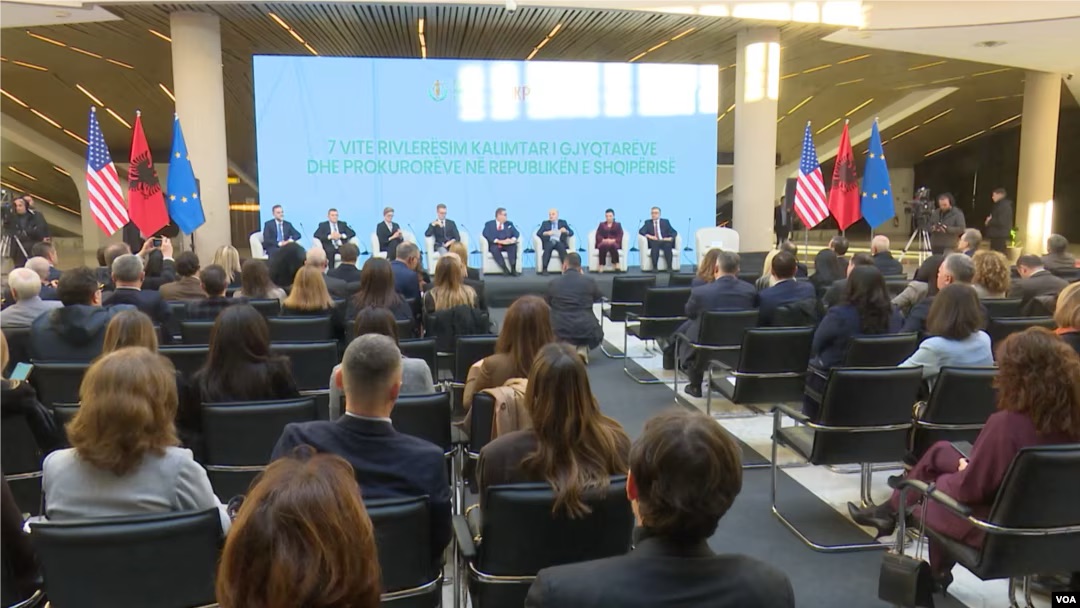Albania’s ‘Vetting Commission’ concludes after 7 years of judicial reform

The Independent Qualification Commission (KPK), Albania’s first-level vetting body for judges and prosecutors, officially concluded its seven-year mandate after evaluating 805 magistrates. As of January 1, 2025, all unresolved cases previously under the jurisdiction of public commissioners will be transferred to the Special Structure Against Corruption and Organized Crime (SPAK), led by Altin Dumani.
Why is this important: The vetting process has been one of the cornerstone reforms aimed at restoring public trust in Albania’s justice system. Over the past seven years, KPK has reviewed the professional performance, moral integrity, and financial assets of 805 members of the judiciary. Of these, 268 magistrates were dismissed, while around 100 resigned preemptively, anticipating that they would fail to meet the vetting criteria. This reform marked a major step in tackling corruption and incompetence within the judiciary.
Context: While KPK wraps up its work, the Special Appeals Chamber (KPA) will continue its work until June 2026 reviewing 42 pending appeals from magistrates who contested KPK’s decisions. Meanwhile, 130 judges and prosecutors have filed cases against their dismissals in the European Court of Human Rights (ECHR), with only one ruling so far reinstating a dismissed judge.
The vetting process is widely regarded as a success by international institutions, including the EU, as it paved the way for a cleaner judiciary and strengthened Albania’s path toward EU integration. However, critics of the justice reform, including opposition leaders Sali Berisha and Ilir Meta, have openly opposed the vetting process, labeling it politically biased. Both Berisha and Meta are currently under investigation by SPAK for corruption and abuse of power, with Meta in custody since October.
What was said: To mark the conclusion of KPK’s mandate, a high-profile conference was held, attended by judicial figures and diplomats from supporting countries, including the U.S. and the European Union. U.S. Chargé d’Affaires Nancy VanHorn acknowledged the challenges faced by vetting bodies and reaffirmed the U.S.’s commitment to supporting justice reform.
“Reforms like these are never easy. Your work has faced resistance, but your courage and professionalism have been pivotal in Albania’s fight against impunity. This milestone reflects the will of the Albanian people for a transparent and accountable judiciary,” VanHorn said, emphasizing the ongoing need for integrity and professionalism in the justice system.
EU Ambassador Silvio Gonzato echoed these sentiments, underscoring the importance of maintaining the standards set by the vetting bodies. “The KLGJ and KLP must uphold the high standards established by the vetting process. They must continue to refer identified cases to SPAK for further investigation,” Gonzato remarked.
SPAK Chief Altin Dumani highlighted the challenges ahead, stating, “The fight against impunity is shaking the foundations of corruption, but this effort requires continuous integrity and professionalism. The transfer of unresolved cases to SPAK will significantly increase our workload, but we are committed to ensuring justice.”
What’s next: As Albania’s vetting process transitions to its final stages, SPAK will face increased scrutiny in handling high-profile cases. The resolution of pending cases and SPAK’s ability to maintain the reform’s momentum will serve as critical indicators of Albania’s commitment to fighting corruption and fostering judicial integrity.


